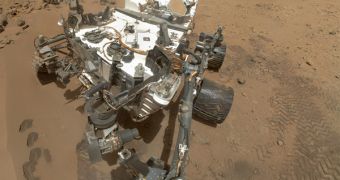Ever since it landed on Mars, Curiosity has been running on Mars time. That's why everything it does is listed as happening on "Sol 64" or similar. Well, it kind of has to run on Mars time, with it being on Mars and all. But the people back at NASA, i.e. Earth, don't.
And starting now, they won't, though they have been doing so for the past three months. Which wasn't much of a problem at first, as a Mars day is only 40 minutes longer than an Earth day.
But those 40 minutes add up first and the Curiosity team was working very strange and very late hours. That's no longer the case, they're back to a regular 8 a.m. to 8 p.m schedule.
They've been able to do this since the planning process for Curiosity's day to day operations has been shrunk down from 16 hours to 12 hours.
"The team has been successful in getting the duration of the daily planning process from more than 16 hours, during the initial weeks after landing, down to 12 hours. We've been getting better at operations," NASA JPL's Richard Cook, project manager for the Mars Science Laboratory, i.e. Curiosity, said.
That also means that some 200 scientists from various parts of NASA and many other institutions, who had been working at JPL, the Jet Propulsion Lab, can finally go home.
Meanwhile, Curiosity is done with its second analysis of a soil sample with CheMin and is getting ready for the fifth scoop and the first soil sample to go into the SAM instrument, which has so far only analyzed the Martian atmosphere.
"On Sol 89 came confirmation that SAM had completed an overnight analysis run on a blank sample cup in preparation for receiving a soil sample. Plans call for the fifth scoop at Rocknest to provide samples going into both SAM and CheMin in coming days," NASA explained.

 14 DAY TRIAL //
14 DAY TRIAL //